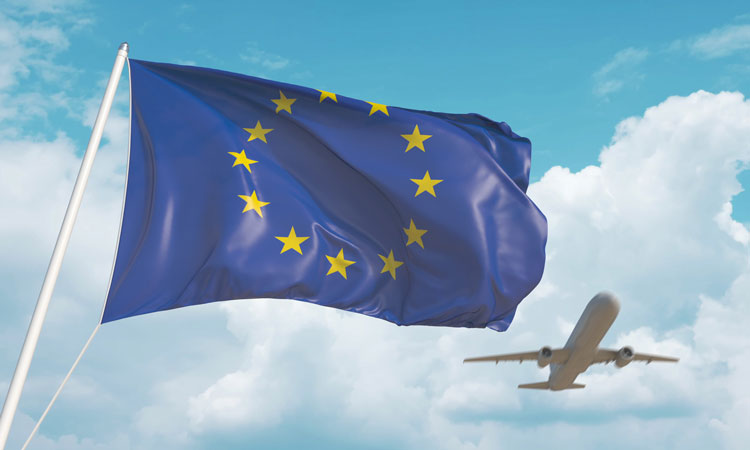Funding opportunities for Europe’s airport regions
- Like
- Digg
- Del
- Tumblr
- VKontakte
- Buffer
- Love This
- Odnoklassniki
- Meneame
- Blogger
- Amazon
- Yahoo Mail
- Gmail
- AOL
- Newsvine
- HackerNews
- Evernote
- MySpace
- Mail.ru
- Viadeo
- Line
- Comments
- Yummly
- SMS
- Viber
- Telegram
- Subscribe
- Skype
- Facebook Messenger
- Kakao
- LiveJournal
- Yammer
- Edgar
- Fintel
- Mix
- Instapaper
- Copy Link
Posted: 16 December 2020 | Gabriele Dackaite | No comments yet
Gabriele Dackaite, ANIMA Project Information Officer at Airport Regions Council (ARC), details the work of the organisation with airport regions, and highlights the funding opportunities that are available for green recovery in EU projects post-COVID-19.


With the COVID-19 pandemic affecting nearly every aspect of people’s lives, many opportunities that once were available are now postponed. During this unexpected and unique time, regions that are in the close vicinity of airports have suffered incredibly. Most probably, the airport, as a significant source of the region’s income, has reduced its capacity enormously and many people working at airports have lost their jobs or had to leave for temporary unemployment.
However, there are some funding opportunities for European regions. The European Union (EU) has agreed on the new long-term EU budget 2021-2027 as well as a three-year recovery budget, which will be dedicated to support the recovery from the pandemic and encourage investment in green and digital transformations. The total sum of these budgets is €1824 billion and it will be broken down to numerous spending branches. With the confirmed budget comes the opportunity to secure funding for regions’ ideas towards sustainable mobility and development, social inclusion and healthcare, urban development, digitalisation and other relevant topics.
It is important to introduce Airport Regions Council (ARC) – an organisation which has worked very closely with airport regions for more than 26 years and has extensive experience in providing them with expertise and voicing their interests at the European level. ARC is based in Brussels where it advocates for more than 30 of its members. Additionally, it hosts events, assists regions in networking and finally, is a trusted and known partner for European funded projects.
From its experience in European projects, ARC has learnt that European regions are a near irreplaceable partner to each project. Regions, local governments and other regional bodies are a crucial part of every project because only they have the power to implement and test the findings of the project and deliver accurate, real-time results to the European Commission (EC). Indeed, it is a win-win situation for all – the regions receive funding for performing research or implementing changes that will significantly improve their region and add value to its residents’ quality of life. On the other hand, by giving feedback and sharing the region’s practice, the project partner is providing insightful results to the EC and other regions that might share the same situation and are looking for solutions to similar problems.
ARC recently released a publication on ‘Funding for Airport Regions’, where you can find the overview of calls for tender and other interesting funding opportunities. This report was created so that the readers could find the most important funding programmes related to research, aviation and greener mobility in one document. It also serves as a short review of the programme, describing the most important aspects to consider in your application, participation limits, funding percentage, etc. For a brief introduction, a couple of funding opportunities (one is already active, another is in the preparation stage) are described below:
European Green Deal Call (Horizon 2020)
Local and regional public authorities can find real opportunities for green recovery in EU projects”
This programme will support additional Green Deal related research and innovation by providing funding close to €1 billion. This call is formed based on 11 topics, which include (3) Industry for a clean and circular economy, (5) Sustainable smart mobility, (8) Zero-pollution, toxic-free environment, etc. The partnerships from these projects will help to drive huge transformations in the environment, society and the economy. Usually, the projects under the Horizon2020 programme are 100 per cent funded and a wide range of partners can participate in one project.
The calls for this programme were published in mid-September 2020 and the deadline to submit project proposals is at the end of January 2021.
Interreg Europe
This programme is especially beneficial for regions as it helps regional and local governments across Europe to develop and deliver better policies. It is divided into numerous regions (i.e. Interreg Central Europe, Interreg South Baltic, etc.), encourages cross-border cooperation, strengthens solidarity and brings partners together to develop and share best practices on a certain topic. Projects must fall under one of these four categories: Research and innovation, SME competitiveness, Low-carbon economy, Environment and resource efficiency. Most commonly, the projects receive 100 per cent funding.
Currently, Interreg Europe’s programme of 2021-2027 is being developed and the calls will be published by the end of 2021. If interested, there are plenty of previously approved projects to explore for inspiration purposes and to develop an idea before the actual calls are published.
Summary
During and after this year it is possible that many regions, especially those that are located close to airports and are dependent on its benefits, will suffer economically. However, local and regional public authorities can find real opportunities for green recovery in EU projects. These projects fund and invest in various initiatives for finding solutions for making the region greener, smarter and testing the ways to improve residents’ quality of life. ARC encourages every region to discuss the opportunity and take a step to implement their ideas. As a key stakeholder in regional development and sustainable mobility, ARC would be delighted to continue the dialogue on funding and investments, ultimately leading to further insightful cooperation.


Related topics
Aeronautical revenue, COVID-19, Economy, Emissions, Funding and finance, Sustainable development
Related organisations
Airport Regions Council (ARC), European Commission (EC), Interreg Europe

















